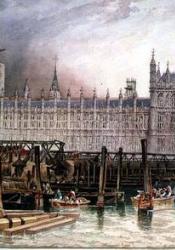Chartism
Chartism was a British working class reform movement that emerged amid the economic depression between 1837-1838. The name comes from the People’s Charter, a bill drafted by a radical in London named Willian Lovett in 1838. The People’s Charter had six demands, universal manhood suffrage, equal electoral districts, vote by ballot, annually elected parliaments, payments of members of Parliaments, and abolition of property qualifications for membership. William Lovett was a secretary and one of the original founders of an organization called the London Working Men’s association, an organization created in 1836 that primarily appealed to skilled laborers and championed for general education. The organization also aligned itself with Owenite Socialism, a form of utopian socialism named after British social reformer Robert Owen. The core philosophy in which Owen’s essays, “ A New View of Society; or, Essays on the Principle of the Formation of the Human Character,” is based on is the belief that human character is formed by circumstances over which individuals have no control.”
The Chartist movement wasn't very successful, in 1839 A Chartist convention had met in London in February to prepare a petition to present to Parliament. “Ulterior measures” were threatened should Parliament ignore the petition, but the delegates disagreed on how much militant action should be used and the convention failed. Later that year in May the movement had moved to Birmingham where riots had led to the arrest of the movement's leaders William Lovett and John Collins. In the following month the convention returned to London and presented its petition in July which Parliament had rejected. This was followed in November by an armed uprising of Chartists at Newport, which was quickly suppressed. Its principal leaders were banished to Australia, and nearly every other Chartist leader was arrested and sentenced to prison. The Chartists then started to organize under more moderate tactics. Three years later a second national petition was presented achieving more than three million signatures, but again Parliament refused to consider it. The movement began to lose momentum in the 1840s as the economy had started to return.
Source:
https://www.britannica.com/biography/Robert-Owen#ref5434

